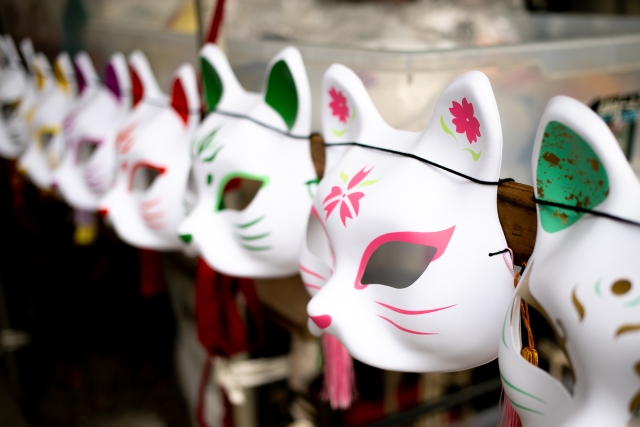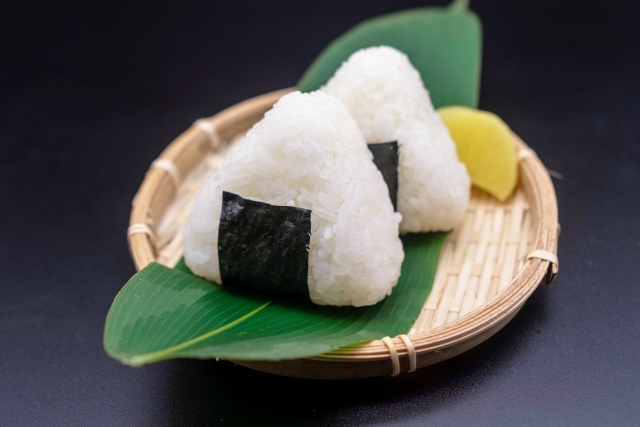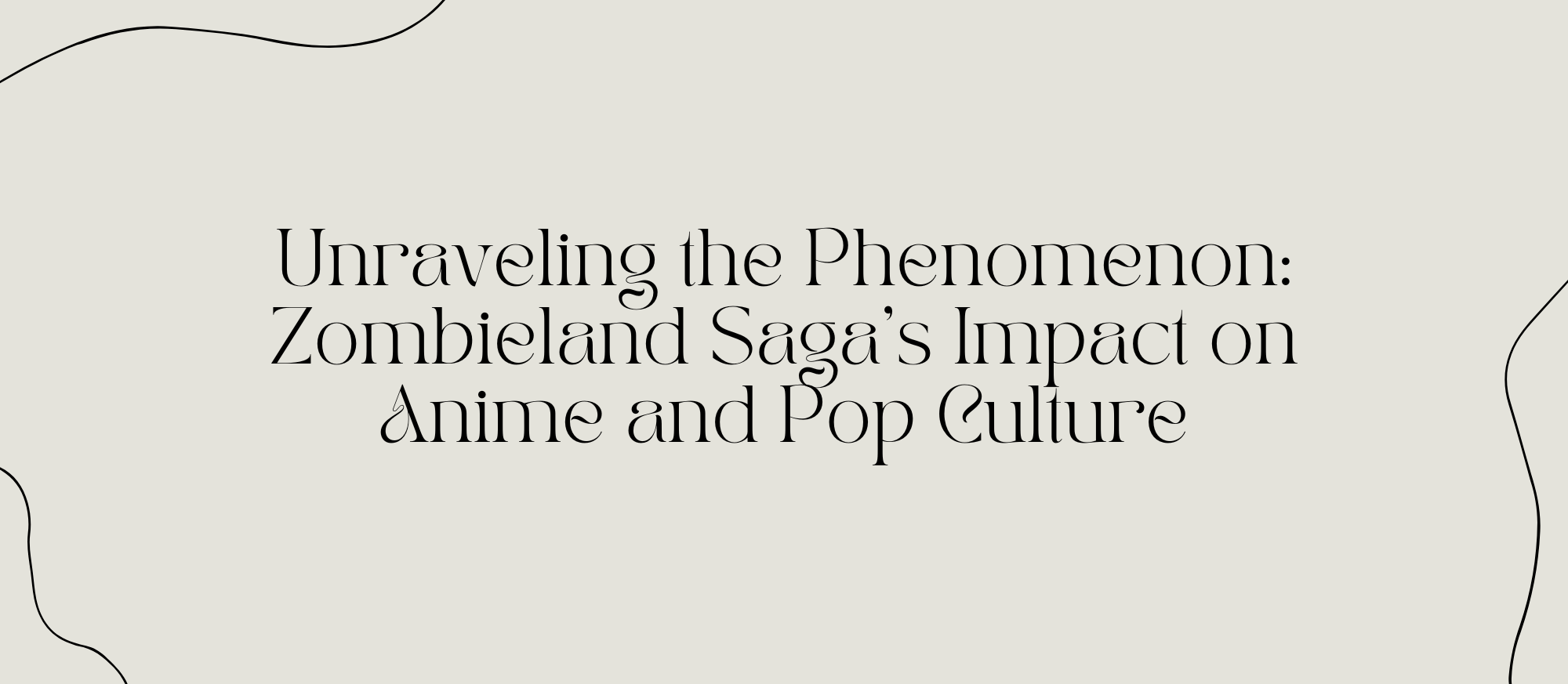Introduction

“Zombieland Saga” marks a unique fusion in the anime world, combining the unexpected elements of zombie horror with the vibrant culture of idol music. Launched with intrigue and an innovative premise, this series has quickly captured the attention of both anime enthusiasts and casual viewers worldwide. Developed by MAPPA, Avex Pictures, and Cygames, “Zombieland Saga” takes an unconventional approach by resurrecting a group of girls from various eras into zombies who must form an idol group to achieve communal and personal redemption. The series first aired in October 2018 and has since garnered praise for its originality, humor, and heartfelt moments, reshaping how audiences perceive the typical idol and zombie genres. The show’s reception, highlighted by critical acclaim and a strong fan following, emphasizes its success in blending genres and delivering a fresh narrative to the anime scene.
Plot Overview

“Zombieland Saga” offers a riveting twist on conventional storytelling by resurrecting seven girls from different historical periods as zombies, united with a singular purpose—to become idol sensations. Under the eccentric guidance of their manager, Kotaro Tatsumi, these girls, each with a distinct personality and background, navigate the challenges of idol life while grappling with their unique condition as the undead. This anime stands out for its seamless integration of comedy, horror, and drama, crafting a narrative that explores themes of ambition, identity, and redemption.
The series adeptly combines these elements to revitalize both the zombie and idol genres, presenting viewers with humorous yet touching episodes that delve into each character’s backstory and their collective endeavor to shine on stage. This unique fusion captivates audiences, offering both the thrill of zombie antics and the allure of pop idol performances, set against the backdrop of Saga Prefecture, which adds a local cultural flavor to the overarching plot. “Zombieland Saga” is a celebration of life through the lens of the undead, pushing the boundaries of typical genre conventions to create something truly memorable.
Character Analysis

“Zombieland Saga” features a unique cast of characters, each resurrected from different eras and brought together to form an idol group. The ensemble includes Sakura Minamoto, a high school girl with dreams of idol fame cut short by an untimely death; Saki Nikaido, a rebellious biker gang leader from the 1990s; and Ai Mizuno, a former pop idol from the early 2000s. Their diverse backgrounds provide a rich tapestry of history and personality that fuel the group’s dynamics and challenges.
Each character contributes significantly to the storyline, with their historical contexts shaping their views and reactions to modern society and the idol industry. For example, Yugiri, a courtesan from the Meiji era, brings a sense of grace and traditionalism that contrasts sharply with the more modern and brash attitudes of her group mates. This blend of old and new perspectives is central to the show’s humor and pathos, as each character learns to navigate the idiosyncrasies of contemporary life and idol culture.
The characters’ backstories not only add depth to their individual arcs but also enrich the group’s chemistry. As they strive to achieve their collective goal, the show explores themes of identity, belonging, and redemption. Each episode delves into the personal growth of the characters, highlighting how their pasts influence their present actions and aspirations. This character-driven narrative makes “Zombieland Saga” a compelling exploration of life and legacy through the lens of the undead, offering viewers both laughter and moments of heartfelt emotion.
Themes and Symbolism

“Zombieland Saga” masterfully weaves together themes of redemption, the relentless pursuit of dreams, and the pervasive influence of pop culture, all set against the unlikely backdrop of a zombie idol group. This anime challenges the norms of the idol genre by juxtaposing the undead with the sparkling world of pop idols, creating a unique narrative that resonates with a wide audience.
The use of zombies in “Zombieland Saga” serves as a powerful symbol for the characters’ struggles and triumphs. Zombies, traditionally seen as creatures stuck between life and death, mirror the idols’ own limbo between their past lives and their current aspirations. This symbolism extends to a critique of the idol industry itself, highlighting the often robotic and reanimated nature of pop idols who are pushed to maintain a certain image and fulfill societal expectations despite personal costs.
Moreover, the series delves into the impact of pop culture by showing how it shapes individual identities and collective consciousness. Through its vibrant and diverse cast, “Zombieland Saga” explores how cultural phenomena can offer a path to self-discovery and even redemption. Each character’s backstory and their journey towards rekindling old dreams or discovering new ones underscore the redemptive power of embracing one’s passions, no matter how unattainable they seem.
“Zombieland Saga” not only entertains but also invites viewers to reflect on the deeper meanings of pursuing dreams and the costs associated with fame in the modern world. Its clever use of zombie symbolism enriches the narrative, offering a nuanced critique of the idol industry while celebrating the resilience and enduring spirit of its characters.
Cultural Impact and Reception

“Zombieland Saga” has captivated audiences and critics alike, both in Japan and internationally, for its innovative blend of zombie horror and idol culture. This anime has notably disrupted the traditional idol genre by introducing elements of horror and dark comedy, which has attracted a broad spectrum of viewers who might not typically engage with idol-centric stories.
Critically acclaimed for its originality and emotional depth, “Zombieland Saga” has sparked considerable discussion regarding the portrayal of idols in media. The series challenges the often idealized representations of idols, presenting characters who grapple with their past lives and personal flaws, thus humanizing them beyond their idol personas. This approach has opened up conversations about the pressures faced by idols and the often unrealistic expectations placed upon them by the industry and fans.
Internationally, “Zombieland Saga” has been praised for its unique take on the zombie genre, blending it with quintessentially Japanese idol elements to create something entirely new and engaging. The show has been influential in demonstrating the versatility of anime, pushing the boundaries of what can be achieved within its genres.
The series has also been a significant contributor to discussions on representation in anime, featuring a diverse cast of characters, each with distinct backgrounds and narratives. This inclusivity has been welcomed by global audiences, further enhancing the show’s cultural impact.
“Zombieland Saga” not only entertains but also challenges and expands the conventions of anime, leaving a lasting impact on the genre and its audiences. Its reception highlights a growing appetite for anime that innovates and redefines traditional boundaries, making it a standout example of how creativity can rejuvenate well-worn genres.
Conclusion

“Zombieland Saga” stands as a testament to the dynamic nature of anime, continuously pushing the boundaries of genre and expectation. This series not only entertains but also provokes thought by blending elements of horror, comedy, and drama into a narrative that captivates and resonates deeply with its audience. Through its unique combination of zombie apocalypse themes and idol culture, it challenges traditional norms and breathes new life into both genres.
The show’s lasting appeal lies in its ability to balance humor with poignant moments, making it more than just a typical anime. Each episode serves as a reminder of the complexities of life and the enduring human spirit, presented through a cast of characters who are both relatable and deeply symbolic. The series masterfully uses its platform to discuss real issues like identity, aspiration, and the meaning of success in a way that is accessible and engaging for a wide audience.
For those who have not yet experienced “Zombieland Saga,” the series offers a rich tapestry of emotions and themes wrapped in an unconventional storyline that keeps viewers on their toes. From thrilling performances to heartfelt revelations, it guarantees a rollercoaster of emotions that redefines what an anime can achieve.
We invite you to dive into “Zombieland Saga” and join the idols of Franchouchou as they navigate their second chance at life. Whether you’re a fan of horror, a lover of idols, or just in search of something new and exciting, this series promises to deliver entertainment and insight in equal measure. Don’t miss the chance to see how a group of zombie idols can leave an indelible mark on the world of anime and beyond.








